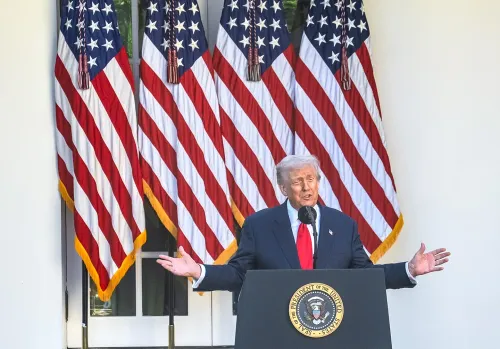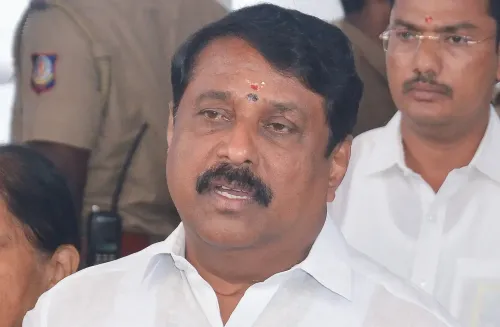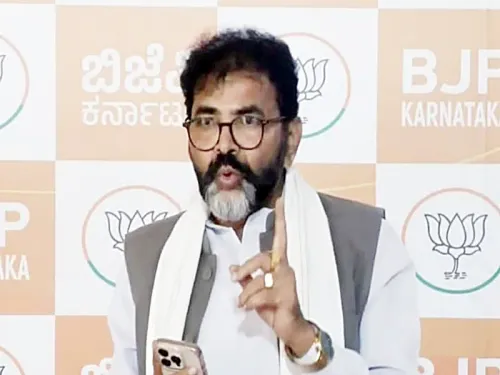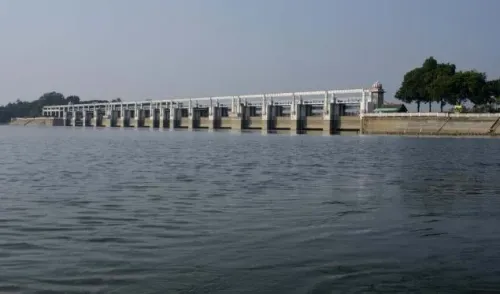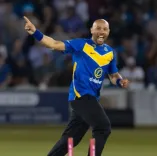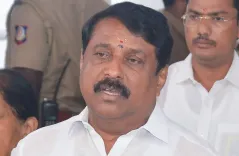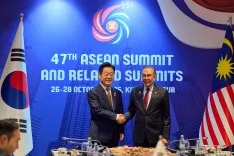Congress in Kerala: Same Issues, New Faces -- Will the Outcome Change?
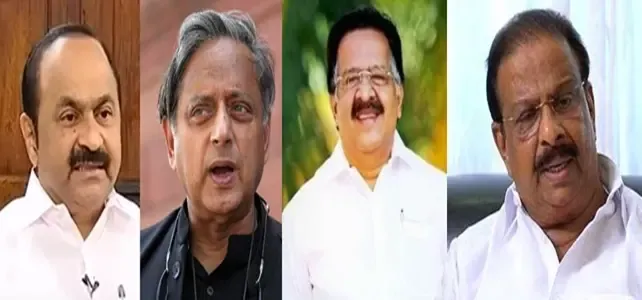
Synopsis
Key Takeaways
- Internal factionalism remains a persistent issue in Kerala's Congress.
- Leadership changes have not significantly altered the party's trajectory.
- The recent high command intervention aims to unify the factions.
- Upcoming elections will test the party's stability and unity.
- Historical patterns indicate skepticism about lasting peace.
Thiruvananthapuram, March 4 (NationPress) Following a significant meeting in Delhi last week, the Congress party in Kerala seems to have entered a phase of temporary tranquility. However, if the past is any guide, such periods of calm have been a persistent aspect of the party's history for almost fifty years.
The core issue remains the same -- internal factionalism -- with only the players changing. The pressing question now is whether the latest action from the party high command will result in a different outcome.
For over fifty years, the Congress in Kerala has been characterized by factional disputes. In the 1970s, the party was split between factions led by K. Karunakaran and A.K. Antony, with Antony at one point breaking away to ally with the CPI(M). However, by the early 1980s, Antony returned, and the schism continued, now with Oommen Chandy leading Antony’s faction.
As the 1990s approached, new factions emerged. Ramesh Chennithala and G. Karthikeyan created the 'reformist' group, while Vayalar Ravi led another breakaway faction. As Karunakaran aged, his son K. Muraleedharan entered state politics, and by the turn of the century, Oommen Chandy had solidified his position as the most dominant faction leader, with other groups rallying under Chennithala.
For the next two decades, the rivalry between Chandy and Chennithala defined the Congress in Kerala. However, the party fell into deeper chaos after Chandy’s health declined in 2021 and Pinarayi Vijayan secured a second consecutive term as Chief Minister. By this time, former Antony faction leaders V.M. Sudheeran and Mullapally Ramachandran had served as state Congress presidents, but their leadership resulted in even more internal conflict instead of stability.
Amidst this turbulence, a new leadership duo emerged -- K. Sudhakaran, the Kannur MP, as State Congress President, and V.D. Satheesan, a five-time legislator, as Leader of the Opposition. However, the past three years have been fraught with infighting and disorder.
A significant change occurred when the party high command intervened decisively after Shashi Tharoor, the four-time MP from Thiruvananthapuram, started to assert his influence. His ascent triggered a realignment of factions, prompting the high command to summon senior leaders and issue a stern warning -- no more public disputes.
In a symbolic gesture, Sudhakaran reached out to Ramachandran, and after a private conversation, the two leaders presented a united front, stating their primary focus would be on restoring the Congress-led UDF to power in the 2026 Assembly elections, beginning with a strong performance in the local body elections later this year.
A media analyst, who requested anonymity, expressed skepticism. “Based on past experiences, Congress leaders in Kerala have never managed to keep quiet for long,” he remarked.
He recalled a well-known quote from the late Oommen Chandy -- “none except the Congress workers can defeat the Congress party.” The diagnosis of the party’s issues has remained constant for decades. The only aspect that has changed is the participants. The real question now is whether the prognosis will differ this time. Only time will reveal if last week's intervention in Delhi has genuinely set the party on a new trajectory.

